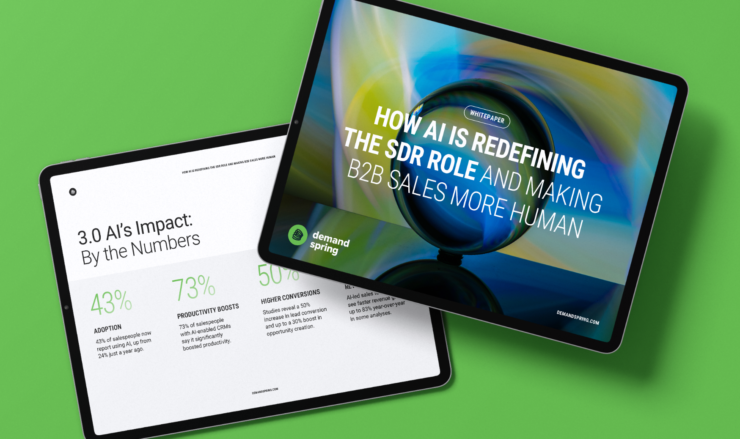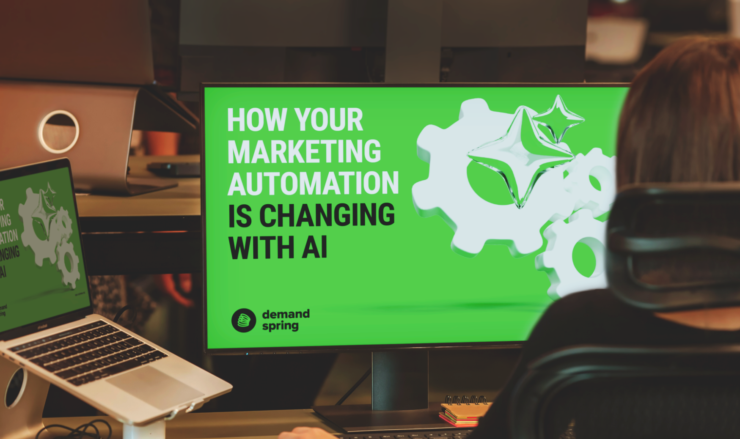As Privacy Concerns in AI for CMOs continues to transform the marketing landscape, data privacy remains a top concern, especially for CMOs navigating compliance hurdles. Over the past few months, I’ve spoken with dozens of CMOs from Fortune 5000 companies who share a common question: “Does ChatGPT or similar AI models ‘steal’ our data, and how can I ensure our information remains secure?” This question often stems from internal challenges raised by legal and compliance teams concerned about AI’s implications on data security.
While AI offers enormous potential, it’s critical to uphold corporate data policies—particularly for marketers handling sensitive customer information. For instance, creating a case study may require anonymizing client information to avoid sharing details that could compromise privacy. For CMOs, especially in highly regulated industries, balancing AI innovation with data security is essential. Here’s a structured approach to help CMOs leverage AI responsibly while safeguarding their data assets.
Step 1: Review AI Tool Privacy Policies and Terms of Use
Understanding the privacy policies of AI tools your team uses, like ChatGPT, Claude, or Google Gemini, is the first step. Each platform manages data differently, so familiarize yourself with their terms of service.
Prompt Hack: Instead of reading through lengthy policy documents, consider using a tool like NotebookLM to simplify the process. Copy the privacy policy and terms of use URLs into NotebookLM and ask it to “Create a summary demonstrating to our compliance team how this AI platform ensures data safety and confidentiality, and how it does not use our data to train its own models.” This will produce a concise, policy-backed response you can share internally. For instance, OpenAI provides various terms based on usage type, so be sure to review the right ones for your application.
Establishing this foundational knowledge not only informs your team but also builds their confidence to communicate AI’s compliance compatibility effectively.
Note: Free versions of AI platforms often leverage your data to improve their models, so for most large organizations, purchasing the Pro/Business/Enterprise versions will be necessary to keep data confidential.
Step 2: Create a List of Non-Sensitive Marketing Use Cases for AI
Even if compliance teams remain concerned, there are numerous AI use cases where data privacy risks are minimal. Build a list of non-sensitive marketing applications to show how AI, including free platforms with higher risks, can still add value. Focus on areas where data is public, reducing privacy concerns. Here are some low-risk examples:
- Content Enhancement: AI can analyze and improve website or blog content without handling sensitive data.
- SEO Optimization: Use AI to perform keyword research and optimize public-facing content for search engines.
- Public Document Review: Let AI assist in analyzing public sales documents or marketing materials.
Since these tasks involve publicly available information, they’re less likely to face compliance hurdles, allowing your team to leverage AI responsibly.
Step 3: Align with Internal Compliance on AI Policies
Given the complexities of data privacy, meeting with your compliance team is essential. This conversation should clarify your organization’s AI policies and help define what data can be safely used with AI. Sharing your findings from Step 1 can help set the context, ensuring everyone is on the same page and up to date, as these Terms of Use and Privacy Statements change frequently.
During this discussion, also outline the use cases identified in Step 2 and explain how data privacy concerns are managed. For example, show how anonymization and limited data access help mitigate risks. Walking them through a real example can be especially helpful, as compliance and legal teams may not have firsthand experience with ChatGPT or other LLMs.
Lastly, with AI regulations becoming more comprehensive worldwide, understanding policies like the EU AI Act can provide valuable insights for CMOs working across regions. The EU AI Act categorizes AI applications by risk level, addressing everything from high-risk applications, like CV-scanning tools for hiring, to those with minimal regulation, offering a model for how AI governance is evolving. Reviewing such regulations can help CMOs anticipate future compliance requirements and set a standard for responsible AI use in marketing.
Step 4: Align with the C-Suite and Set Realistic Expectations
AI has transformative potential, but CMOs should align with C-suite peers, especially the CFO and CEO, to set realistic expectations. Often, once leaders approve AI initiatives and allocate a budget, they may expect immediate, substantial results.
In reality, there is a ramp-up period. Teams need time to train, experiment, and develop proficiency in advanced AI capabilities. According to McKinsey’s latest AI research, Generative AI’s impact on productivity could add between $2.6 trillion and $4.4 trillion annually in value to the global economy. This substantial economic potential highlights the importance of adopting AI mindfully, ensuring your team is equipped for long-term success and sustainability.
Based on my experience, it usually takes around three months for marketing teams to fully adopt an AI-first mindset. During this time, they will learn the technology, identify critical use cases, and build confidence in advanced prompting techniques. This gradual onboarding ensures long-term success, but it’s important to communicate this timeline to leadership upfront.
After this initial phase, your team will be better equipped to harness AI capabilities and can even help sway internal gatekeepers regarding the safe use of AI-enhanced tools as they gain confidence in the technology.
Step 5: Embrace the AI Wave and Build a Foundation for Success
When your organization is aligned on AI’s strategic value, the real transformation begins. Here are some steps to set your team up for long-term success:
- Ongoing Compliance Reviews: Regularly update compliance teams on new AI developments and privacy updates. Proactively notifying compliance about new AI tools or policy changes will foster trust.
- Advanced Training for Teams: Keep your team’s skills sharp with continuous AI training. This not only builds technical acumen but also unites teams around a growth mindset and shared learning.
- Strategic Scaling of AI Use Cases: As confidence grows, expand AI use across more complex marketing processes, such as automating email personalization or enhancing data analysis in ways that remain compliant.
Turning Compliance into a Strategic Advantage
Data privacy doesn’t have to hinder AI innovation. With careful planning, open communication, and a strong commitment to compliance, CMOs can harness AI’s power responsibly. By guiding your team through these steps, you’ll alleviate data privacy concerns and position your marketing team as a model of effective, responsible AI adoption.
In navigating AI and data privacy, CMOs have an opportunity to lead a cultural shift towards innovation and compliance. With the right approach, AI can become a competitive advantage, helping your organization stay at the forefront of modern marketing. Contact us to get free a consultation by clicking here.




